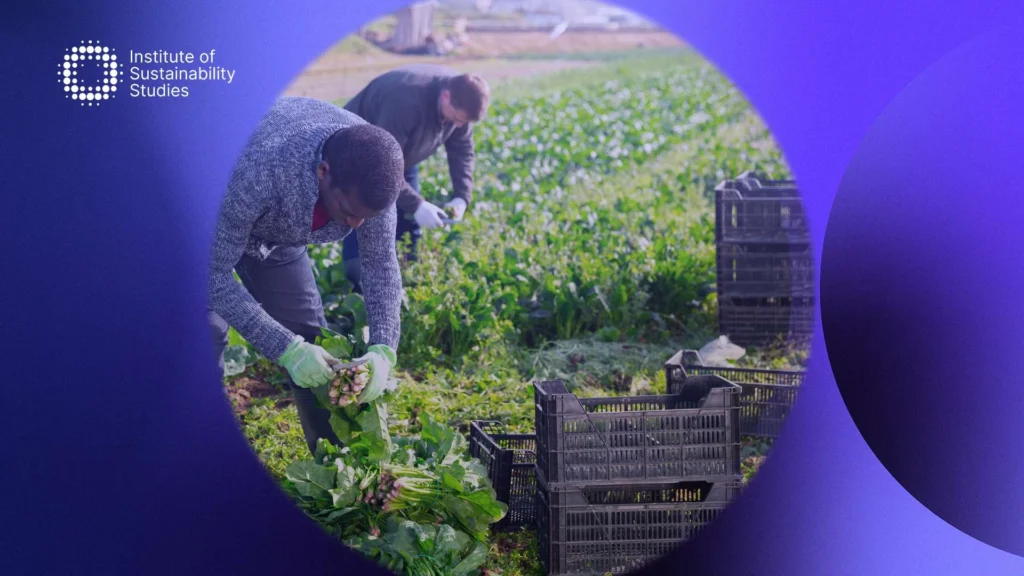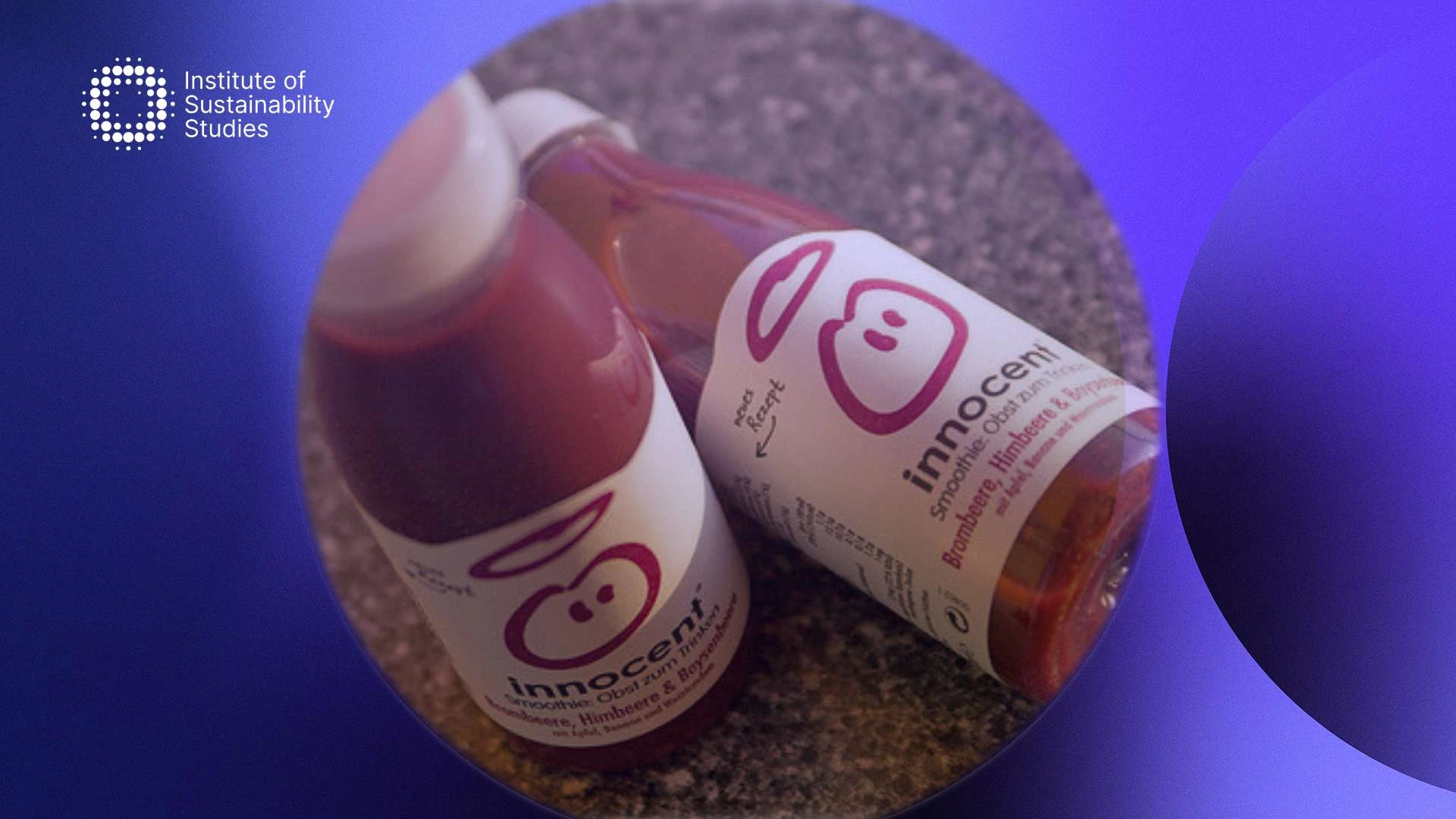The food and beverage (F&B) sector sits at the centre of some of the world’s most pressing sustainability challenges, from deforestation and biodiversity loss to water scarcity and human rights violations. Agriculture alone accounts for nearly 70 percent of global freshwater withdrawals and is a major driver of land-use change and emissions. As global supply chains grow more complex and climate risks intensify, businesses face mounting pressure from regulators and consumers alike. For those navigating this landscape, sustainable sourcing offers a tangible way to mitigate risk, protect natural resources, and build trust with customers. Keep reading as we explore why it should be a cornerstone of F&B business sustainability strategies.
What is sustainable sourcing in the F&B sector?
Sustainable sourcing in the F&B sector refers to the procurement of raw materials, ingredients, and products in ways that are environmentally responsible, socially ethical, and economically viable over the long term. It ensures that food production does not degrade ecosystems, exploit workers, or contribute to climate change. Simultaneously, sustainable sourcing supports resilient supply chains and consumer trust.
Below are some of the key principles of sustainable sourcing in F&B across environmental, social, and economic pillars.
Environmental
- Deforestation-free sourcing: Avoiding raw materials linked to forest loss (e.g. palm oil, soy, cocoa).
- Regenerative agriculture: Enhancing soil health, biodiversity, and carbon sequestration through farming practices.
- Water stewardship: Managing water use efficiently and protecting water quality.
- Climate-conscious procurement: Reducing greenhouse gas emissions across the supply chain.
- Biodiversity protection: Preventing ecosystem degradation and promoting landscape conservation.
Empower every team member across your organisation with the knowledge
to achieve your sustainability goals
Social
- Fair labour practices: Ensuring safe working conditions, fair wages, and no child or forced labour.
- Support for smallholders: Investing in training, resources, and fair pricing for small-scale farmers.
- Gender equality: Promoting inclusive policies and opportunities for women across agricultural communities.
- Indigenous rights: Respecting land rights and traditional knowledge of indigenous populations.
- Community engagement: Partnering with local communities to create shared value.
Economic
- Supply chain transparency: Building traceable, auditable supply networks.
- Long-term partnerships: Creating stable relationships with suppliers for mutual resilience.
- Risk mitigation: Addressing price volatility, climate disruptions, and regulatory risks.
- Cost efficiency with impact: Balancing sustainability goals with business performance.
- Innovation and value creation: Driving product differentiation through sustainable sourcing claims.
Benefits of sustainable sourcing
Sourcing practices have a direct impact on the planet, people, and profit. For F&B businesses, adopting sustainable food sourcing is a strategic move.
Protecting the environment and natural resources
The F&B industry is deeply connected to agriculture and natural ecosystems. Unsustainable sourcing practices often lead to deforestation, soil degradation, excessive water use, and loss of biodiversity. By sourcing ingredients sustainably (such as through regenerative farming, organic production, or deforestation-free supply chains), companies can significantly reduce their environmental footprint. This approach helps preserve the ecosystems that food production depends on and contributes to global climate goals.
Strengthening supply chain resilience
Climate change, resource scarcity, and geopolitical instability are increasing the risk of supply chain disruptions. Sustainable sourcing builds resilience by diversifying suppliers, improving traceability, and supporting more stable and environmentally sound agricultural practices. This makes it easier for businesses to adapt to challenges like crop failure, price fluctuations, or regulatory shifts.
Meeting consumer expectations
Today’s consumers are increasingly conscious of how their food is produced. There’s rising demand for transparency, ethical sourcing, and environmentally friendly products. By adopting sustainable sourcing practices, F&B companies can meet these expectations, build trust, and strengthen brand loyalty. Sustainability credentials can also serve as a powerful differentiator in competitive markets.
Build in-house sustainability expertise with flexible, fully online training programmes tailored for your team
Upholding social responsibility
Agricultural supply chains often involve smallholder farmers and vulnerable labour groups. Without proper oversight, these supply chains can be linked to poor working conditions, unfair wages, and even forced labour. Food industry sustainable sourcing supports ethical practices, such as fair trade certification, living wages, and capacity building, ensuring companies contribute positively to the communities they depend on.
Unlocking long-term business value
Sustainable sourcing goes beyond compliance and ethics; it makes good business sense. In other words, it opens doors to innovation, operational efficiency, and investor interest. Companies that embed sustainability into their procurement practices are better positioned to reduce risk, cut costs, and seize new market opportunities. Ultimately, sustainable sourcing supports long-term value creation and competitive advantage.
Sustainable food sourcing examples – Inspiration for building a sustainable sourcing strategy
These examples showcase how purpose-driven sourcing strategies can reduce impact, build resilience, and add value throughout the supply chain.
Rubies in the Rubble (UK)
Rubies in the Rubble is a condiment company that rescues surplus fruit and veg that would otherwise go to waste and turns them into chutneys, relishes, and sauces.
Sourcing practices:
- Works directly with UK farms to source surplus produce.
- Prioritises local sourcing to minimise food miles.
- Uses sustainable packaging, including recycled and recyclable materials.
Together, these practices enable them to reduce agricultural waste and emissions while creating awareness about food system inefficiencies.
Tony’s Chocolonely (Netherlands)
Tony’s Chocolonely is a mission-driven chocolate brand aiming to end slavery in the cocoa industry.
Sourcing practices:
- Sources traceable beans directly from farmer cooperatives in Ghana and Côte d’Ivoire.
- Pays a premium above fair trade to ensure living incomes.
- Partners with suppliers to improve working conditions and agricultural practices.
Embedding these practices means the brand can promote human rights in cocoa supply chains while improving farmers’ livelihoods and empowering communities.
Toast Ale (UK)
Toast Ale is an independent beer company brewing craft beers using surplus bread from bakeries and sandwich makers.
Sourcing practices:
- Replaces one-third of barley in its brews with surplus fresh bread.
- Collaborates with local bakeries and food waste initiatives.
- Donates all profits to charities fixing the food system.
These practices enable them to tackle food waste at the ingredient level and foster circular economy thinking in beverage production.
Hodmedod’s (UK)
Hodmedod is a British company championing pulses, grains, and seeds grown sustainably on UK farms.
Sourcing practices:
- Works directly with UK farmers to grow crops like fava beans, lentils, and quinoa, reducing reliance on imports.
- Prioritises agroecological and regenerative practices to build soil health and biodiversity.
- Supports crop diversification to increase farm resilience and reduce input dependency.
This means they can promote low-impact, protein-rich alternatives to meat and soy. Therefore, their sourcing practices support British farming and encourage sustainable crop systems rooted in local ecosystems.
Conclusion
The above examples highlight how ethical and sustainable sourcing can be a powerful lever for F&B businesses to create impact across environmental, social, and economic dimensions. Whether it’s reducing food waste, championing regenerative agriculture, or supporting ethical trade, purpose-driven sourcing is shaping the future of food.
Looking to build your team’s sustainability capabilities? Our corporate training solutions are fully customisable to your organisation’s goals and knowledge gaps. With flexible modules for every level (from procurement to leadership), we’ll help embed sustainability across your business.
Dedicated to harnessing the power of storytelling to raise awareness, demystify, and drive behavioural change, Bronagh works as the Communications & Content Manager at the Institute of Sustainability Studies. Alongside her work with ISS, Bronagh contributes articles to several news media publications on sustainability and mental health.
- Bronagh Loughlinhttps://instituteofsustainabilitystudies.com/insights/author/bronagh/
- Bronagh Loughlinhttps://instituteofsustainabilitystudies.com/insights/author/bronagh/
- Bronagh Loughlinhttps://instituteofsustainabilitystudies.com/insights/author/bronagh/
- Bronagh Loughlinhttps://instituteofsustainabilitystudies.com/insights/author/bronagh/









